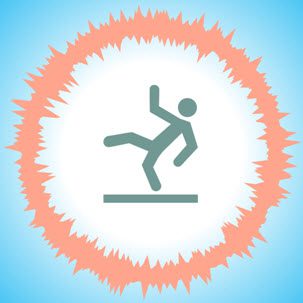Over 8 million victims a year visit hospital emergency rooms after a serious fall, making these incidents the most common reason for such trips. Similarly, workplace falls cause more days of missed work than any other type of job injury.
Many falls occur at home, but many other happen at shopping malls, office buildings, parking lots, and other public places. How can these victims obtain compensation for their injuries? To answer this question, we must ask some other ones.
Why Was the Victim on the Premises?
If I expect guests at my home, I normally inspect the house briefly to make sure that it is ready for them. That responsibility is just social courtesy, but landowners have a legal responsibility to make sure their premises are safe if they want or expect guests to arrive. Many states, including Florida, use a variation of a common law classification system to determine the exact extent of this legal duty.
- Duty of Diligent Care: If the victim was a public invitee, or someone whom the landowner has specifically invited for a specific purpose, the owner has a duty to correct dangerous conditions at the property, like a burned-out light or inadequate security. The owner also has a duty to inspect the premises, identify safety concerns, and take action to either correct them or warn people about the danger. The owner is also responsible for foreseeable third-party crimes (g. a convenience store owner may be liable if the clerk is robbed at night). The same duty applies to business invites (people who have no specific invitation but are there to conduct business) and licensees by invitation (social guests).
- Lesser Duty of Care: If the person is an uninvited licensee (g. a party crasher or hunter) or a trespasser (someone who “intrudes” on the land or is “an idler with no apparent purpose”), the owner owes no duty of care other than to refrain from any intentional harm; there is also no duty as to third-party crimes.
To determine if a third-party crime is foreseeable, courts normally look to the similarity, temporal proximity, and geographical proximity of other crimes in the area.
How Do I Prove Liability?
In this context, negligence hinges on knowledge, and such knowledge can be direct or circumstantial.
Sometimes, an owner has actual knowledge, due to a “smoking gun” like a repair invoice, bathroom cleaning report, a notice about a defective elevator, and so on. But typically, victims must use circumstantial evidence, and this evidence is analyzed according to the rule in Anjou v. Boston Elevated Railway Company.
In the early 1900s, Ms. Anjou slipped on a banana peel at a busy Boston train station; witnesses said the offending peel was black, dirty, flat, and gritty, as if it had been “tramped over a good deal.” The owners claimed they did not know about the hazardous condition, but the court concluded that because the peel had been on the ground for so long, constructive knowledge had attached and there was sufficient circumstantial evidence to establish liability.
So, the longer a hazard goes uncorrected, the more likely it is that the owner is responsible for damages. These losses include economic damages, such as medical bills, and noneconomic damages, such as emotional distress.
Reach Out to Assertive Attorneys
Landowners must maintain their property according to the law. For a free consultation with an aggressive personal injury lawyer in Brandon, contact Reed & Reed. We do not charge upfront legal fees in negligence cases.
From our office in Brandon, Reed & Reed helps clients in Tampa, New Tampa, Plant City, East Hillsborough County and throughout the state of Florida.
Resources:
nfsi.org/nfsi-research/quick-facts/
scholar.google.com/scholar_case?case=16717770360856545385&hl=en&as_sdt=6&as_vis=1&oi=scholarr




